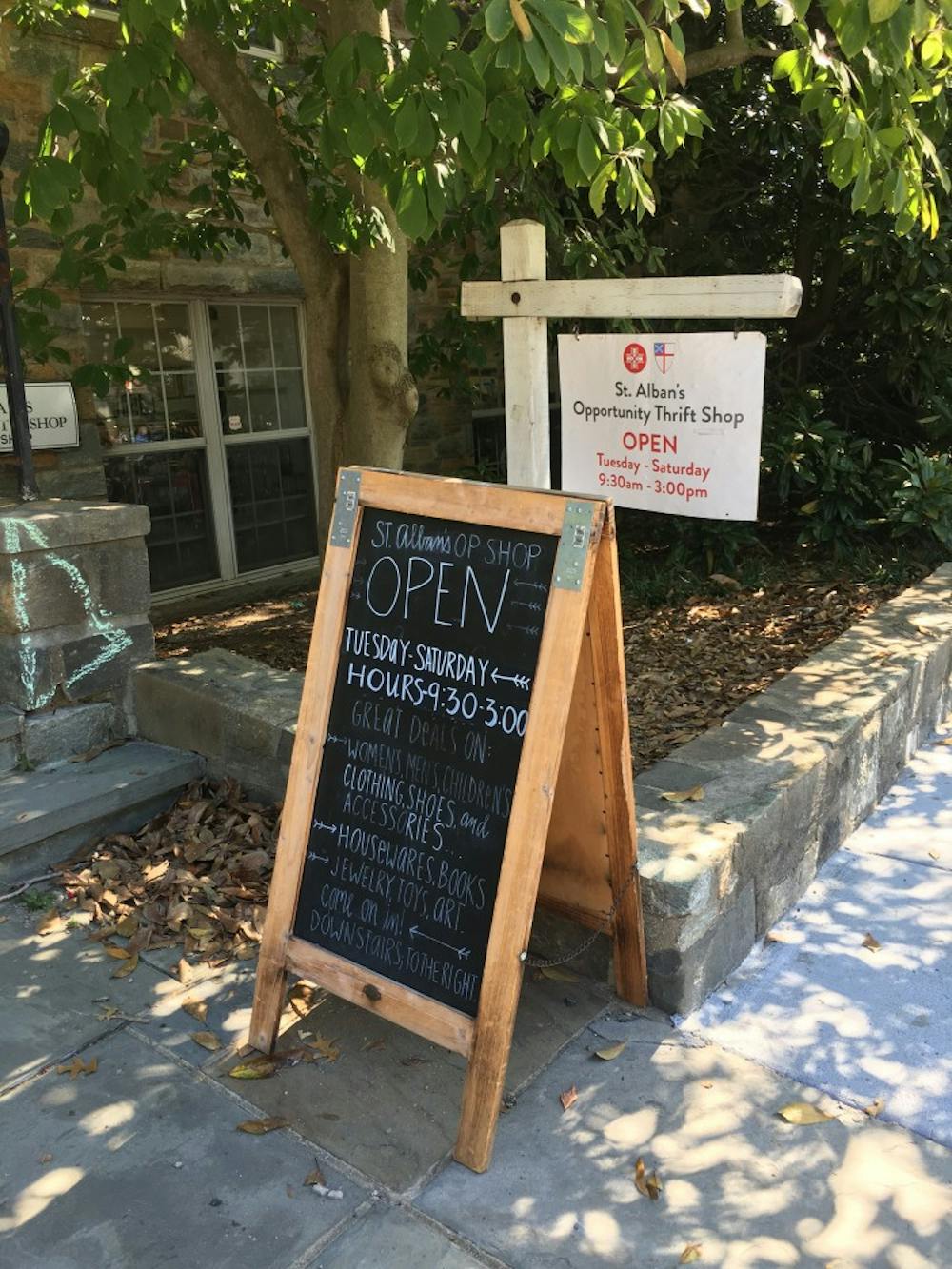Editor's Note: This article appeared in The Eagle's October 2020 virtual print edition.
The future is uncertain for Washington’s thrift shops. Ana Everhart, the owner of Frugalista, a thrift store in Mount Pleasant, said that she worries another shutdown intended to curb the spread of the coronavirus would permanently close her business. Frugalista already shut down for three months, due to the pandemic, which wreaked financial havoc on the business.
“We are trying to survive right now,” Everhart said.
Everhart said that the financial impact of the pandemic cut Frugalista’s monthly income by half. The shop received funding through the U.S. Small Business Administration’s Paycheck Protection Program, which helped cover part of Frugalista’s rent.
Although Frugalista’s landlord allowed Everhart to pay half the amount of rent, Everhart said that she still had to lay off three people. Now, Everhart has to also find a way to pay back the other half of rent.
Due to the coronavirus, Frugalista is currently not accepting clothing, which means that everything in stock at the store is from before the pandemic. Luckily, Frugalista has enough clothing to get through the fall and winter months.
Everhart said that Frugalista is known for selling professional clothing, which was helpful for young professionals in the area with internships. Now, COVID-19 has changed the landscape of what clothing customers buy.
“Now we’re not going to offices to do work anymore. The young professionals are not doing their internships,” Everhart said. Many customers have been buying more casual clothing such as sweatshirts and sweatpants instead of business clothing such as blouses and dress pants, she said.
She said that Frugalista’s 10 percent student discount is still in place during the pandemic.
Other stores have not been able to remain open like Frugalista. Recently, Arizona-based thrift shop chain company, Buffalo Exchange, which was located on 14th Street, permanently closed. The Opportunity Shop at St. Alban’s Episcopal Church has also shut down until further notice. Due to its close proximity to American University, it is a favorite among students.
Cassidy Nelson, an AU senior in the D.C. area this semester, said that she does not go thrift shopping as often since some of her favorite stores are closed. Nelson said that she misses St. Alban’s because she was always able to find what she needed there.
“If you were trying to get clothes for professional stuff, or if you were just trying to find a funky T-shirt, they really had everything there,” Nelson said.
Nelson said that when she has gone thrift shopping, there have been fewer people in the store. She also said that some stores have less clothing available since they are not accepting donations.
“There aren’t as many things, which in a way also brings up a problem for people who rely on thrifting as their main source of clothing because there won’t be as many accessible things that they need for the winter,” Nelson said.
Nelson said that she began thrift shopping in 2016 in order to live a more sustainable lifestyle.
“Shopping fast fashion is accessible to a lot of people,” Nelson said. “Going vintage and thrift shopping isn’t always accessible, but since I can, I try to limit my waste as much as possible.”
Nelson said that she enjoys thrift shopping because she is able to find unique items that she couldn’t find at a chain retailer. She said that she believes thrift shopping may start to shift even more toward websites and apps such as Depop or Poshmark. However, she said that people who may need thrifted clothing won’t be able to access these online platforms.
As Frugalista holds on for survival, Everhart emphasized the importance of regular customers helping her persevere.
“I am happy and excited because our regulars are coming,” Everhart said. “And some of them are saying, ‘You know what, I don’t need this, but I know you need to survive. You need to keep going.’”





